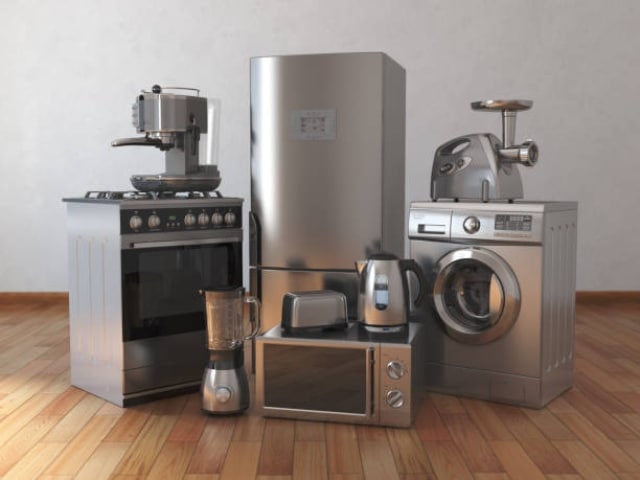Are you getting the most out of your appliances? And more importantly, are they running safely? The first step to ensuring the safety of your appliances and your home is understanding dedicated circuits and when they are needed.
What are dedicated circuits?
First, a circuit is a path through which energy flows. It’s how your lights flicker on, your fridge keeps food cool and your washing machine washes. But not all electronics need the same type of circuit. Homes are wired with specific, separate circuits to evenly and safely distribute electricity throughout your house. Breakers are designed to trip if an overload of electricity surges at once.
When a circuit supports a single appliance, it’s known as a dedicated circuit. This means that the appliance has its own breaker in your circuit box. This ensures high-power appliances have access to the proper voltage or amperage to function safely in your home.
What appliances require a dedicated circuit?
So which appliances actually need a dedicated circuit? This about the biggest appliances, the ones with the biggest jobs. Usually, these are the appliances that need a separate breaker. They include the following:
- Refrigerators
- Freezers
- Stoves
- Dishwashers
- Washing machines
- Dryers
- Heating and air conditioning units
- Furnaces
- Water heaters
- Jacuzzis/whirlpools
What about smaller appliances?
If you use smaller appliances, like microwaves and toasters, in the same outlet, it might be good to create a dedicated circuit for those too. In fact, small appliances draw a lot more power than you would think. This could result in the need for a separate breaker.
- Toasters
- Microwaves
- Space heaters
- Garbage disposals
- Hairdryers + styling accessories
- Window air conditioners
- Sump pumps
If your circuit breakers are constantly tripping, it is time to contact your local electrician to solve the problem. They can help you decide which appliances need dedicated circuits and safely perform the work.
Do you have more questions about dedicated circuits? Contact us!

